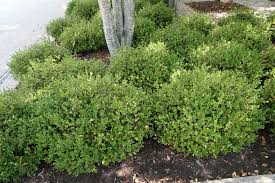
Boxwood Shrubs
Boxwood shrubs, also known as Buxus, are a popular choice among gardeners and landscapers for their versatility, durability, and classic beauty. These evergreen shrubs are known for their dense foliage and ability to be shaped into various forms, making them ideal for creating hedges, topiaries, and garden borders.
There are over 70 different species of boxwood shrubs, but the most commonly used for landscaping are Buxus sempervirens, Buxus microphylla, and Buxus harlandii. Each species has its own unique characteristics, but they all share some common traits that make them desirable for gardeners.
One of the main advantages of boxwood shrubs is their hardiness. They can withstand a wide range of weather conditions, including cold temperatures and drought, making them ideal for gardens in many different climates. They are also resistant to many pests and diseases, making them a low-maintenance option for gardeners who want to spend more time enjoying their gardens and less time maintaining them.
Another advantage of boxwood shrubs is their versatility. They can be used in a variety of ways, from creating formal hedges to adding structure and texture to mixed borders. They can also be trimmed and shaped into various forms, from simple spheres to intricate topiaries, giving gardeners the ability to create unique and personalized garden designs.
Boxwood shrubs also have a long history in garden design. They have been used in formal gardens for centuries, dating back to the Roman Empire. In fact, the famous gardens of Versailles in France feature numerous boxwood hedges and topiaries. This history adds a sense of timelessness and elegance to any garden design that includes boxwood shrubs.
When it comes to planting boxwood shrubs, there are a few things to keep in mind. First, they prefer well-draining soil and should be planted in an area that receives full to partial sun. They also benefit from regular pruning to maintain their shape and prevent them from becoming too leggy.
One potential downside of boxwood shrubs is their susceptibility to boxwood blight, a fungal disease that can cause defoliation and dieback. To prevent this disease, it’s important to plant disease-resistant varieties and practice good hygiene in the garden, such as cleaning pruning tools between uses and avoiding overhead watering.
Overall, boxwood shrubs are a versatile and classic choice for gardeners and landscapers. Their hardiness, versatility, and timeless beauty make them a popular choice for creating formal